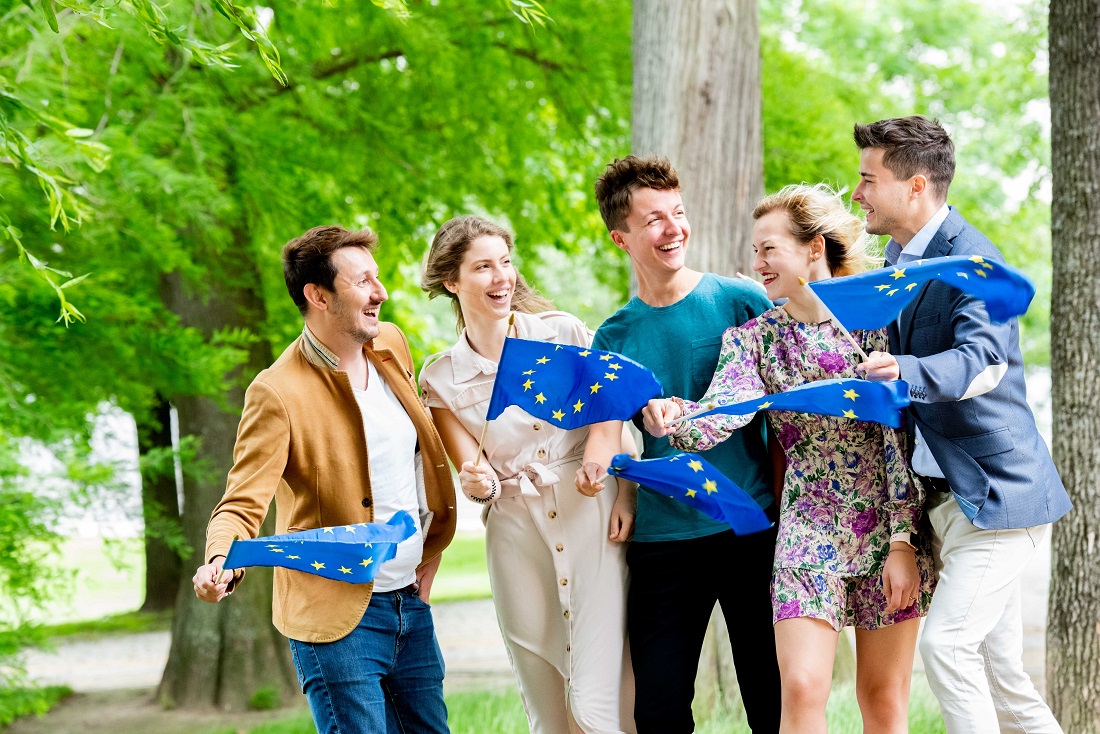European Year of Youth delivers new approaches to empower young people
- 30 Nov 2022

The coronavirus crisis of the past years had a severe impact on Europe’s youth. Now, more than ever the EU needs to support and encourage our young people to become active, engaged citizens.
Alongside a calendar packed with youth-focused events, 2022 saw a range of cohesion policy actions in collaboration with the European Parliament, Member States, regional and local authorities and young people themselves. These measures represent a long-term vision for more inclusive youth participation.
‘Young people can become agents of change, entrepreneurs and innovators in their local communities,’ says Commissioner for Cohesion and Reforms, Elisa Ferreira. ‘We need young people’s vision, engagement and participation in shaping the future of the EU, leaving no one and no region behind.’
Flagship EU-wide projects
DG REGIO proposed three flagship projects for the European Year of Youth, which together represent EUR 3 million to support young people.
With a focus on the European Green Deal and a just transition, EUTeens4Green will offer grants for climate initiatives to young people aged between 15 and 24. The call for project proposals targets young people living in one of the regions included in the Just Transition Fund (JTF).
The project promotes the participation of young people in the design and implementation of cohesion policy and a greener Europe. The deadline for projects applications has been extended to January 2023.
In the EU’s outermost regions, from Guadeloupe to the Azores to Le Réunion, another project will empower young people aged 15-24 and encourage them to become more active in their community. Youth for Outermost Regions is a two-year project that will support actions tailored to each region, which will contribute to improving quality of life, local development, and growth.
There is no particular area or subject on which these proposed actions must focus. However, projects linked to EU priorities – such as the green and digital transition, and recovery – are particularly welcome.
Young people from the EU or neighbouring countries are also being given the opportunity to get involved with territorial cooperation projects thanks to Youth4Cooperation and Interreg.
Building on the Interreg’s Youth Manifesto, the Commission invited young people to a series of events throughout the year that culminated in the Youth4Cooperation Summit in November. Recommendations from the Youth Manifesto will continue to be implemented.
Harnessing young people’s full potential
Cohesion policy is co-financing several additional actions in partnership with other EU policies to further support young Europeans, from journalists to designers to young farmers.
The Youth4Regions programme has provided training, mentorship and work experience to young journalists and journalism students for over five years. It expanded in 2022 to better champion aspiring journalists and photographers.
The New European Bauhaus Prizes for Rising Stars recognise younger generations who are develop emerging concepts and ideas for beautiful, sustainable and inclusive spaces. The prizes are for concepts or ideas submitted by Europeans aged 30 or younger.
In rural areas, young people will benefit from a rural revitalisation platform to be set up in partnership with the Directorate-General for Agriculture and Rural Development. The platform will predominantly support regions affected by population loss, ageing and a lack of economic opportunities – particularly helpful for young people living in such areas or who may decide to move there.
Leaving no region behind
On the ground, several EU-funded projects have demonstrated the value of regional funding for young Europeans.
The e-Schools pilot project provided ICT equipment and digital education tools for 151 primary and secondary schools in Croatia. In the longer term, the project will better prepare pupils for higher education and encourage lifelong learning.
In Sardinia, the YACOPO project actively involved young people in the monitoring of 2014-2020 cohesion policy and in the design and implementation of the current programming period. Through workshops, the project provided Management Authorities with better knowledge of the priorities of young people and civil society.
While, for the EU’s recovery plan, NextGenerationEU, it is important to put young people at the core of European solutions to key challenges, such as climate change and the digital transformation, cohesion policy is perfectly placed to support young Europeans and it will continue to do so through to 2027 and beyond.
The European Year of Youth may be nearing its end but the legacy will continue for decades to come.
Find out more:


